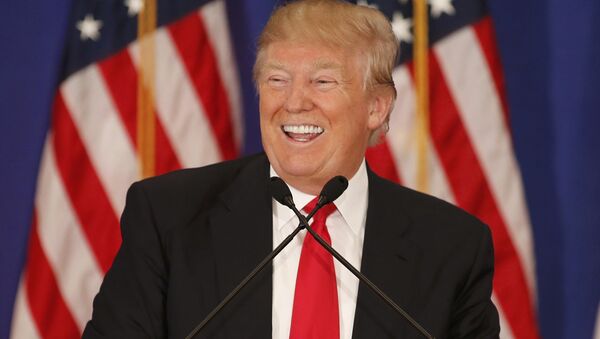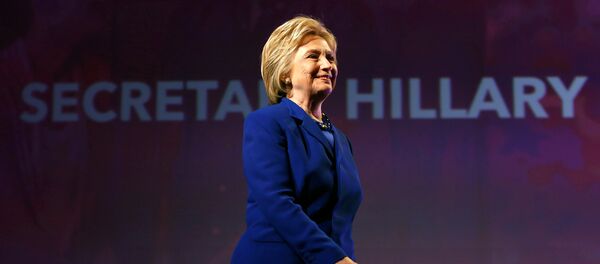In his recent interview to The New York Times the Republican candidate said that in the case of Russian aggression toward NATO members, including Baltic countries, US would only come to their military aid if those countries fulfill their obligations to America.
"You can't forget the bills. They have an obligation to make payments. Many NATO nations are not making payments, are not making what they're supposed to make. That's a big thing." The mogul stressed.
Secretary General of NATO Jens Stoltenberg criticized the remark, noting that concurrence within the alliance is essential. Meanwhile, Baltic members immediately hit the panic button.
Former Defense Minister of Latvia Artis Pabriks said on Twitter that if Trump doesn't change his viewpoint, his presidency may jeopardize the security of the region. Ojars Kalnins, who chairs the foreign affairs committee in Latvia's parliament, on Thursday echoed his words in an interview with Latvian radio saying that Trump's remarks are "both dangerous and irresponsible."
President of Lithuania Dalia Grybauskaite swiftly reassured citizens by telling reporters that no matter who becomes next president of the US, she keeps faith in America.
According to political analyst of RuBaltic portal, Alexandr Nosovytch, the fuss over Trump's remarks is obsessional.
"Trump's casual remark became the central focus in Lithuania, Latvia and Estonia." He noted. "Meanwhile, [Trump] said nothing extraordinary in his interview. Nothing to cause such hysteria."
"Trump is guided by America's national interests and nothing other than that. It is a realistic approach toward foreign affairs, in many aspects different from America's stance in the last decades. Just pragmatism and national interests… No global dominating…and exporting democracy via USAID." He said.
Former USAID project officer Josh Cohen on Friday wrote in his piece for Reuters that Trump's assertions that the United States cannot continue to be the "world's policeman" deserve to be taken seriously, adding that US interventions in Iraq and Libya "support Trump's case".
"What Trump ultimately offers is an American foreign policy more focused on narrow American national interests than previously pursued by the United States." He wrote.
According to Nosovytch, Trump's doctrine of political realism brings into question whether the US needs the Baltics at all, and this is what sparks panic among Baltic elite.




